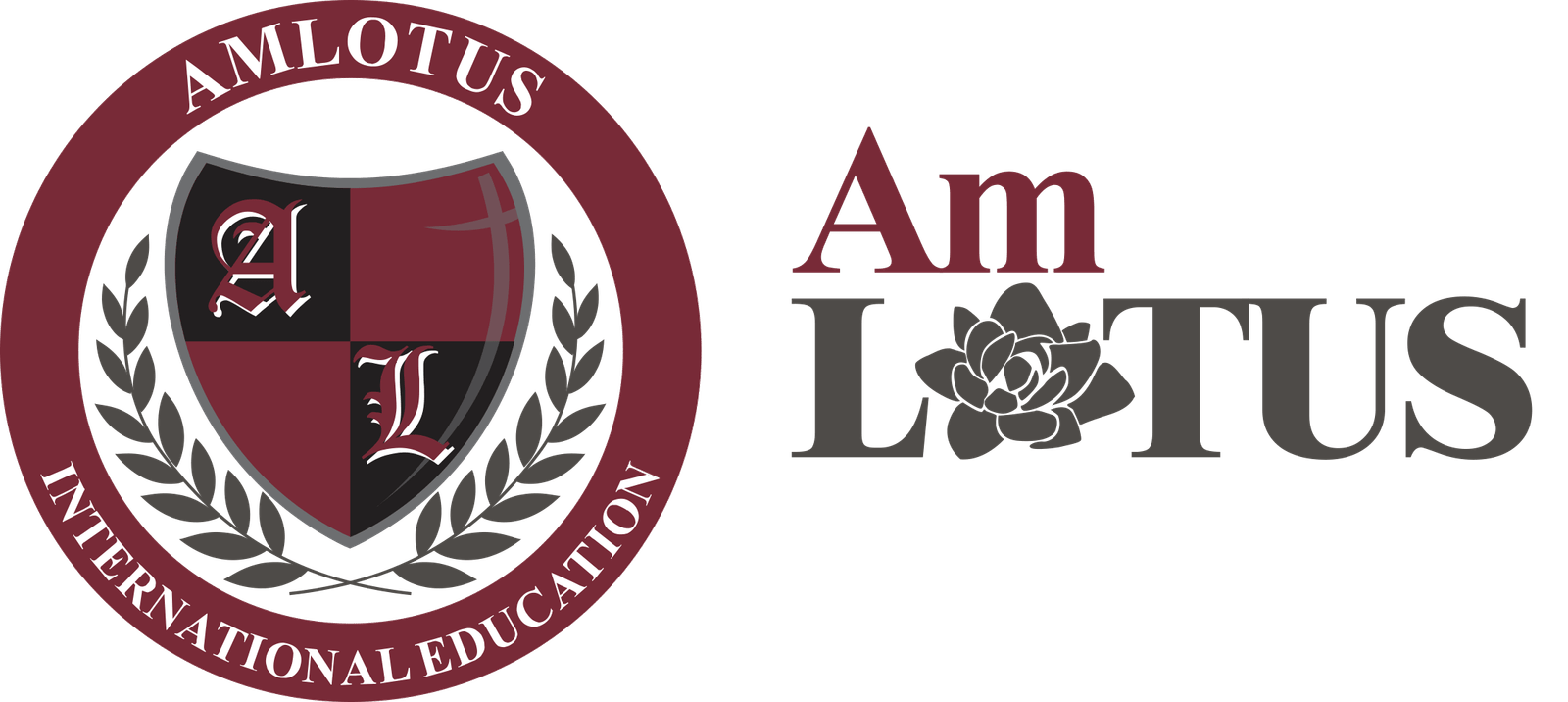Amlotus Proficiency Descriptors
General English/ Electives/Academic ESL Track
(Adapted from CEFR)
Level | Descriptors |
Level 1 CEFR: A1
| • Can understand and use familiar everyday expressions and very basic phrases aimed at the satisfaction of needs of a concrete type.
• Can introduce him/herself and others and can ask and answer questions about personal details such as where he/she lives, people he/she knows and things he/she has. • Can interact in a simple way provided the other person talks slowly and clearly and is prepared to help. |
Level 2 CEFR: A2
| • Can understand sentences and frequently used expressions related to areas of most immediate relevance (e.g. very basic personal and family information, shopping, local geography, employment). • Can communicate in simple and routine tasks requiring a simple and direct exchange of information on familiar and routine matters. • Can describe in simple terms aspects of his/her background, immediate environment and matters in areas of immediate need. |
Level 3 CEFR: B1
| • Can understand the main points of clear standard input on familiar matters regularly encountered in work, school, leisure, etc. • Can deal with most situations likely to arise while traveling in an area where the language is spoken. • Can produce simple connected text on topics that are familiar or of personal interest. • Can describe experiences and events, dreams, hopes and ambitions and briefly give reasons and explanations for opinions and plans. |
Level 4 CEFR: B2
| • Can understand the main ideas of complex text on both concrete and abstract topics, including technical discussions in his/her field of specialization. • Can interact with a degree of fluency and spontaneity that makes regular interaction with native speakers quite possible without strain for either party. • Can produce clear, detailed text on a wide range of subjects and explain a viewpoint on a topical issue giving the advantages and disadvantages of various options. |
Level 5 CEFR: C1
| • Can understand a wide range of demanding, longer texts, and recognize implicit meaning. • Can express ideas fluently and spontaneously without much obvious searching for expressions. • Can use language flexibly and effectively for social, academic and professional purposes. • Can produce clear, well-structured, detailed text on complex subjects, showing controlled use of organizational patterns, connectors and cohesive devices. • Can identify phonetic rules and symbols in standard American language. |
Elective: Level 5 CEFR: C1
| • Can identify inferred meaning in a linguistically complex text. • Can understand the double meaning of a word used in a joke. • Can comment on and discuss a linguistically complex text. • Can write a clear summary of a complex factual text, maintaining its original tone and message. • Can express ideas spontaneously without searching for expressions. • Can produce clear, well-structured, detailed text on complex subjects, showing controlled use of organizational patterns, connectors and cohesive devices. |
Elective: Level 5 CEFR: C1
| • Can extract information, ideas and opinions from highly specialized sources within their field. • Can identify logical flaws in a presentation or lecture. • Can present a technically complex process in digital marketing. • Can write a detailed critical review. |
Elective: Level 5 CEFR: C1
| • Can understand the use of puns, allusions, jokes in advertisements or newspaper. • Can understand complex arguments in a newspaper. • Can contribute to groups discussion even when speech if fast and colloquial. • Can write a clear summary of a complex factual text, maintaining its original tone and message.
|
Elective: Level 5 CEFR: C1
| • Can identify inferred meaning in a linguistically complex text. • Can understand the double meaning of a word used in a joke. • Can comment on and discuss a linguistically complex text. • Can write a clear summary of a complex factual text, maintaining its original tone and message. |
Elective: Level 5 CEFR: C1
| • Can identify inferred meaning in a linguistically complex text. • Can present a technically complex process in medicine. • Can express ideas spontaneously without searching for expressions. • Can write a clear summary of a complex factual text, maintaining its original tone and message.
|
Academic ESL Level 6 CEFR: C2
| • Can understand with ease virtually everything heard or read. • Can summarize information from different spoken and written sources, reconstructing arguments and accounts in a coherent presentation. • Can express him/herself spontaneously, very fluently and precisely, differentiating finer shades of meaning even in the most complex situations. |
TEST PREP Prep Track
Level | Descriptors |
Level 5 CEFR: C1
| • Can understand a wide variety of longer texts, and recognize implied meanings. • Can express ideas spontaneously without searching for expressions. • Can use language flexibly and effectively for social, academic and professional purposes. • Can produce clear, well-structured, detailed text on complex subjects, showing controlled use of organizational patterns, connectors and cohesive devices. |
Level 6 CEFR: C2
| • Can understand with easy virtually everything heard or read. • Can summarize information from different spoken and written sources, reconstructing arguments in a coherent presentation. • Can express ideas spontaneously, fluently and precisely, differentiating finer shades of meaning. |
Business English Track
(Adapted from CEFR/GSE)
Course | Descriptors |
Business Level 3 CEFR: B1 | • Can understand simple work-related texts, such as emails, memos and company postings. • Can recognize key points in reports, main ideas in work-related documents, and scan a resume for key information. • Can understand conversations about rules or regulations related to the workplace, and the main points of a work-related recorded presentation. • Can use simple, fixed expressions to accept offers in a simple business transaction, and make and justify a simple point of view in a work-related document. • Can produce a short, simple business report, and a short report on a work- related task or event. |
Business Level 4 CEFR: B2 | • Can understand the main information in the agenda for a work-related meeting, the duties and responsibilities listed in job descriptions. • Can scan short, simple texts on the same topic to find specific information, understand the main ideas described in a company’s mission statement, and extract relevant details in everyday letters, brochures and short official documents. • Can recognize the tone and intended audience of a formal presentation, distinguish between ambiguity and certainty in speech, and use simple language to convey the basic facts about a negotiating position. • Can write a short, simple work-related report outlining key issues, a simple summary of action points from a meeting, and produce an email giving some detail of work-related news and events. |
Business Level 5 CEFR: C1 | • Can extract key details from a company blog or article, recognize significant points in straightforward reports and business letters, understand the session details listed in a conference program, the main information in technical work-related documents, written explanations of skills needed for career progression, and compare a resume/CV against a job posting to determine if key requirements have been met. • Can recognize indirect disagreement expressed through modifiers used during a negotiation, and understand a course of action suggested during a negotiation. • Can state a basic description of professional goals. In writing, students can compose a work-related email/letter expressing thanks in detail, a short, concise formal report explaining how a product works, and provide answers to open-ended questions in a survey about familiar products or services. |
Business Level 6 CEFR: C2 | • Can understand written feedback on job performance, and a complex • Can identify relevant articles and reports on a range of professional topics, • Can give a short, prepared update on a work-related project, and suggest a resolution to a conflict in a simple negotiation using fixed expressions. • Can write a cover letter addressing specific information mentioned in |
Short Program
Level | Descriptors |
Intro to Grammar in Use S (Level 2) CEFR: A2
| • Can understand sentences and frequently used expressions • Can communicate in simple and routine tasks requiring a simple and direct exchange of information on familiar and routine matters. • Can describe in simple terms aspects of his/her background, immediate environment and matters in areas of immediate need. |
Advanced Grammar In Use S (Level 3) CEFR: B1
| • Can recognize the main points of clear standard input on • Can utilize present, past, future, progressive and perfect tenses. • Can utilize functions of modals in a context. • Can identify the difference between the use of gerunds and infinitives. • Can distinguish between comparatives and superlatives. • Can develop a paragraph with a clear topic sentence, a controlling idea, and supporting examples. |
Intro to Writing S (Level 4) CEFR: B2
| • Can understand the main ideas of complex text on both concrete and abstract topics, including technical discussions in his/her field of specialization. • Can develop a cohesive paragraph with a clear thesis statement and supporting details, utilizing direct and indirect quotations. • Can produce clear, detailed text on a wide range of subjects and explain a viewpoint on a topical issue giving the advantages and disadvantages of various options and presenting a relationship in cause and effect. |
Advanced Writing S (Level 5) CEFR: C1
| • Can identify a wide range of rhetorical modes used in narration, cause/effect, comparison, argumentation, problem/solution, and summary. • Can express ideas fluently and spontaneously without much obvious searching for expressions. • Can use language flexibly and effectively for social and professional purposes. • Can produce clear, well-structured, detailed text on complex subjects, showing controlled use of organizational patterns, connectors and cohesive devices. • Can utilize appropriate grammatical structures for writing assignments. |
Accent Reduction S (Level 5) CEFR: C1 | • Can identify phonetic rules and symbols in standard American language. |
Reference
– CEFR (Common European Framework of Reference for Language)

